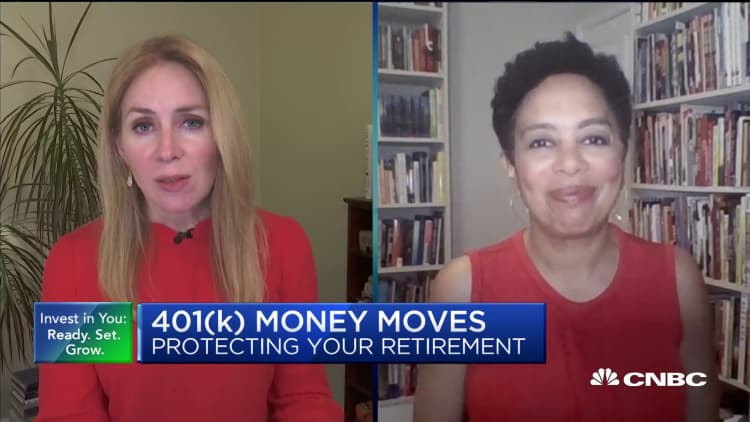Don't count on being able to get emergency cash from your 401(k) account, even if a new law says you can.
While the recently passed CARES Act included provisions to make it easier to access your retirement money penalty free for coronavirus-related reasons, it's up to employers whether to implement the legislative changes.
And at last count, fewer than half are doing so — although many are still deciding, according to a recent survey by the Plan Sponsor Council of America.
"I think it's likely we will see an increase in plans adopting the [provisions]," said Hattie Greenan, director of research for the group, noting that 44% are still evaluating the options to "make a determination as to what is in their participants' short- and long-term best interest."
Additionally, the survey shows that about 16% of plans — primarily larger ones — have paused company matches to participants' accounts, and a small share have paused or reduced non-matching contributions (i.e., profit-sharing). The majority of plans (76.5%) are not contemplating making such changes, although that could change if economic conditions worsen and businesses need to reduce their financial obligations amid a cash crunch.
"They are actively trying not to [suspend contributions], but their primary concern right now is keeping the company viable," Greenan said.
"If the current economic crisis continues, we will likely see an uptick in contribution suspensions as businesses, particularly small ones, make tough decisions for their employees," Greenan said.
Meanwhile, the CARES act, signed into law by President Trump in late March, provides a couple of different ways to tap your 401(k) account if the coronavirus pandemic has resulted in a financial hardship, assuming your plan allows it.
The first option lets you take up to $100,000 or 100% of your balance (whichever is less) without the typical early withdrawal penalty for participants under age 59½. You get three years to either pay the taxes due on the distribution or to replace the money and not owe taxes on it.
The second option is a 401(k) loan, which can be up to $100,000 if, again, for coronavirus-related reasons. (The usual limit for such loans is $50,000.) If you go this route, be aware that while 401(k) loans usually are for five years, the balance often becomes due if you leave your job before then — otherwise it can end up counting as a distribution with taxes due.
Additionally, you also may be able to pause your loan payments temporarily if your plan allows it.
Even if your employer is allowing the penalty-free withdrawals, experts generally recommend proceeding with caution.

"I would recommend exhausting other available options first before considering touching retirement savings," said certified financial planner Ajay Kaisth, founder of KAI Advisors in Princeton Junction, New Jersey.
Greenan, of the Plan Sponsor Council, noted that some plans "are trying to weigh concerns about employees draining their accounts and being less secure in retirement with what employees need right now to take care of themselves and their families."
More than 5.2 million Americans filed for unemployment last week, the Labor Department said Thursday. That brings the crisis-induced total to about 22 million.
More from Personal Finance:
How Americans plan to spend their relief checks
What to do if you can't pay your credit card bills
Scammers looking to steal your stimulus check


